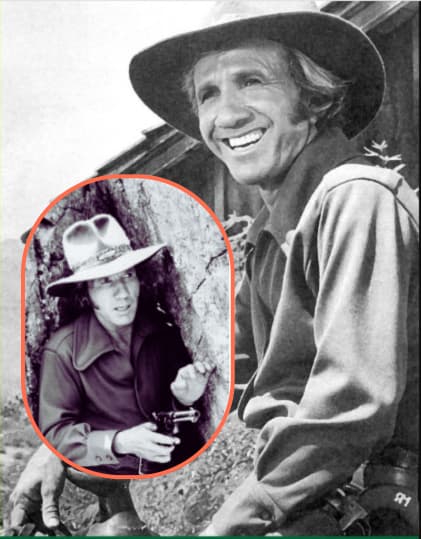
“In the Valley”: A Melancholy Echo of Lost Love and Lingering Memories
There are certain melodies, certain voices, that, with just a few notes, can transport you back to a different time, a simpler time, when the world seemed to move a little slower. For many of us who grew up with the golden age of country music, Marty Robbins was one such voice, a troubadour whose songs painted vivid pictures of cowboys, wide-open spaces, and, most powerfully, the enduring pangs of the human heart. Tonight, we’re going to revisit one of those classic tunes, a melancholic gem that might not have grabbed the headlines like some of his bigger hits, but etched itself deep into the souls of those who truly listened: “In the Valley.”
First, let’s set the scene for this particular track. While “In the Valley” didn’t hit the Billboard charts as a single in its own right, it was a vital component of one of Marty Robbins’ most iconic and beloved albums: Gunfighter Ballads and Trail Songs, released in September 1959. This album, a masterpiece of Western storytelling through song, peaked at an impressive number 6 on the U.S. pop albums chart and has since gone platinum, cementing its place in musical history. It’s a testament to the album’s overall strength and the immersive world it created that even shorter, more reflective pieces like “In the Valley” resonated so deeply with listeners. The collection itself, which includes monumental hits like “El Paso” and “Big Iron,” was recorded in a legendary single eight-hour session on April 7, 1959, a feat that speaks volumes about Robbins‘ raw talent and the synergy with his band.
Now, to the heart of the song itself. “In the Valley” is a sorrowful and deeply reflective piece that speaks to the profound ache of lost love and the enduring power of memory. While often associated with the classic cowboy narrative, its true meaning stretches beyond the dusty plains to the universal human experience of longing for what once was. It evokes the image of a solitary soul, perhaps a cowboy or a weary traveler, returning to a place imbued with personal history—a valley where a cherished love was found and, inevitably, lost. The valley becomes a metaphor for a sacred, bittersweet space in the heart, forever marked by the joy and pain of a past relationship.
The beauty of Marty Robbins’ delivery in “In the Valley” lies in its understated elegance. There’s no dramatic crescendo or overt theatrics; instead, he uses his smooth, resonant baritone to convey a quiet, profound sadness. Each note seems to carry the weight of years, of unspoken regrets, and of a love that, though gone, continues to echo in the solitude of the landscape. It’s a gentle lament, a whispered confession to the winds that sweep through the hallowed ground of memory.
For older readers, this song taps into a wellspring of shared experience. We’ve all had those valleys in our lives—places, real or imagined, where significant chapters unfolded, where hearts were won and, sometimes, broken. The wistful melody and evocative lyrics of “In the Valley” bring those personal “valleys” into sharp focus, reminding us of the bittersweet nature of looking back. It’s not about wallowing in despair, but rather acknowledging the beauty of what was, even as we feel the pang of its absence. It’s the sigh of recognition, the quiet nod to a past self who loved deeply and felt profoundly.
Marty Robbins had an unparalleled gift for storytelling, whether it was the epic sagas of gunfighters or the tender reflections on love and loss. “In the Valley” showcases his ability to distil complex emotions into simple, poignant verses. It’s a reminder that even amidst the grand narratives of the Wild West, there were always personal dramas unfolding, quiet tragedies playing out in the hearts of individuals. This song, though brief, carries an immense emotional weight, offering a moment of quiet contemplation in the midst of the more action-packed tales on Gunfighter Ballads and Trail Songs. It serves as an emotional anchor, grounding the listener in the raw, human experiences that underpin all of Robbins‘ work. It’s a timeless piece, just like the memories it evokes, forever lingering, forever calling us back to that personal valley where love once bloomed.